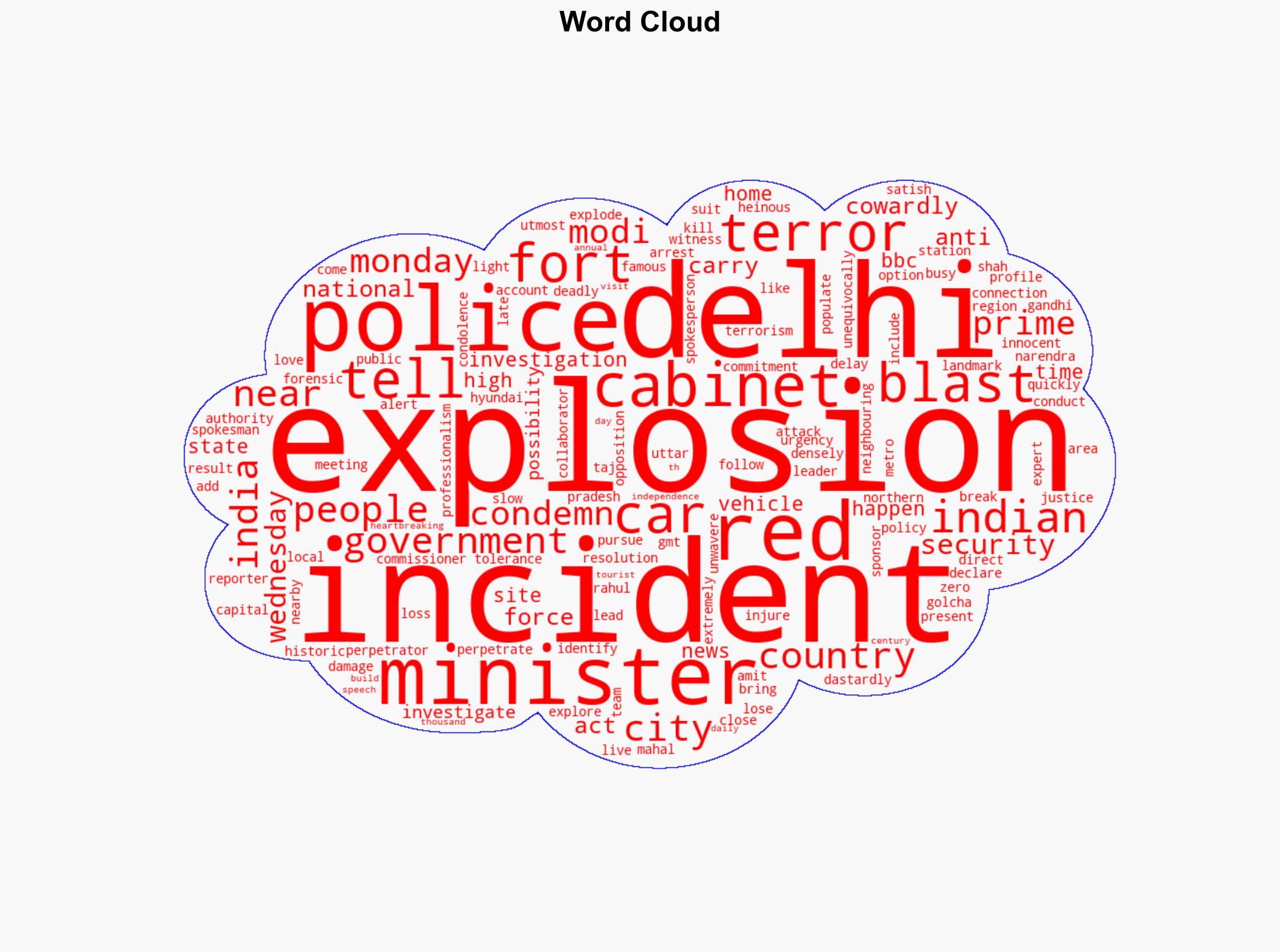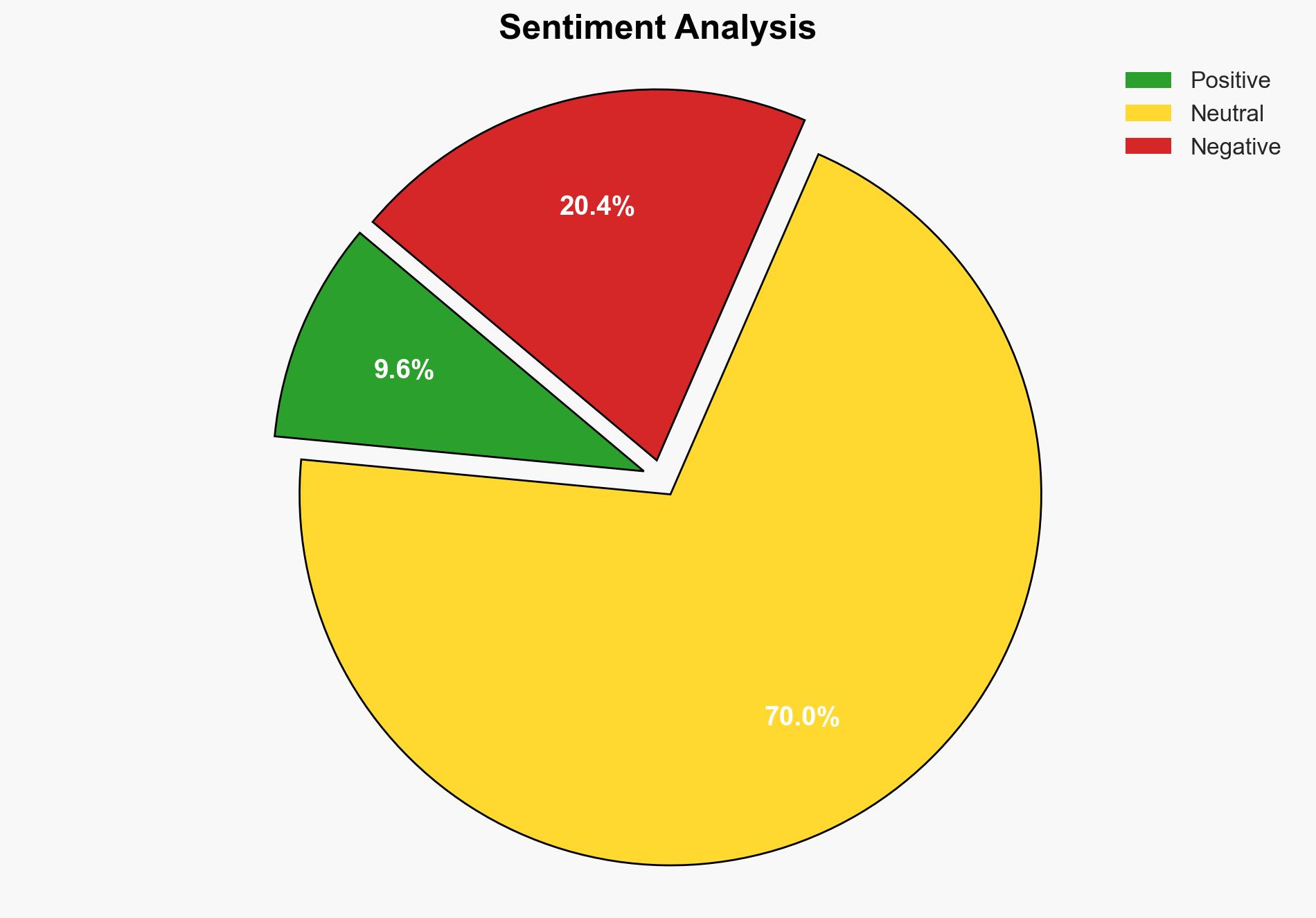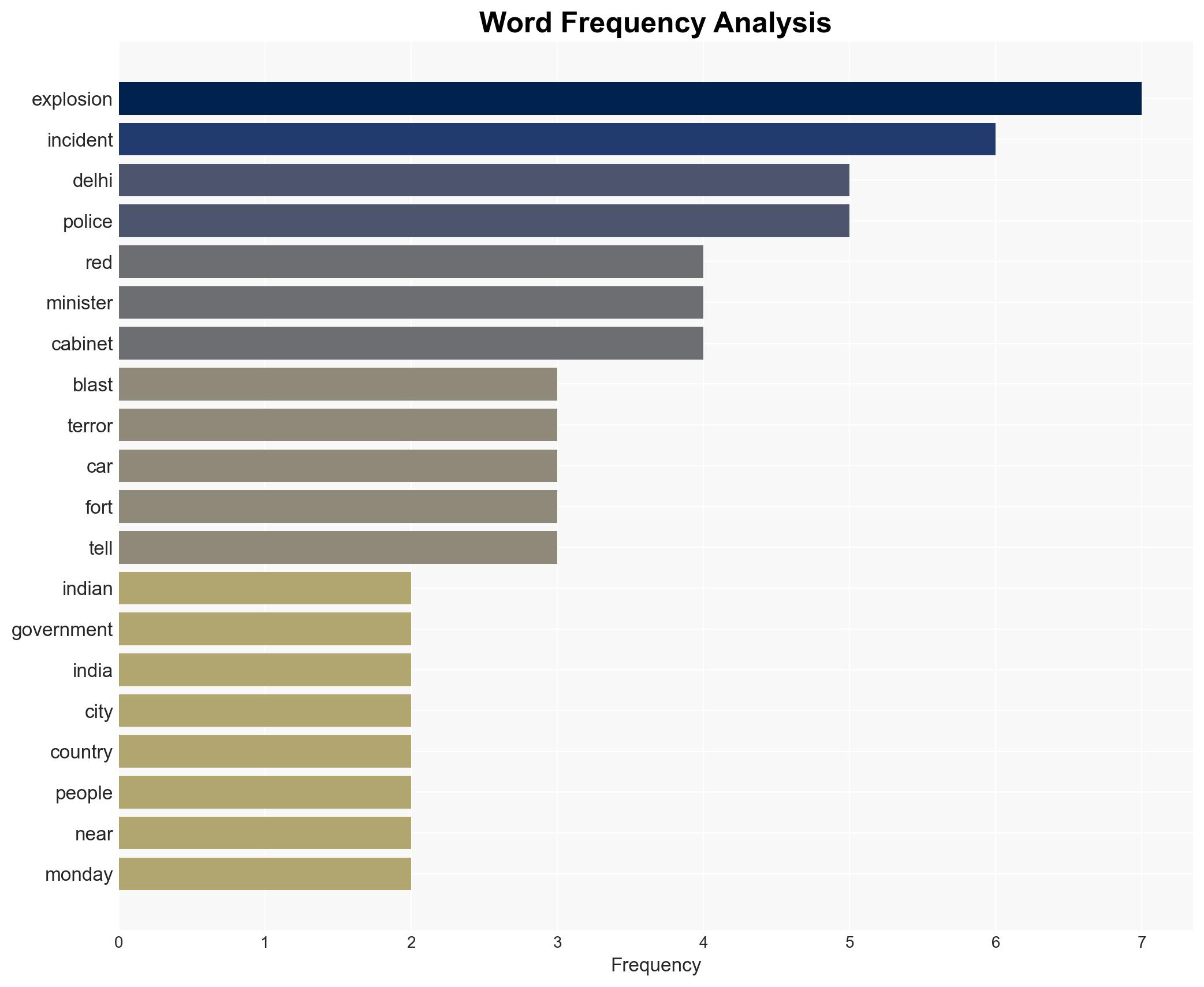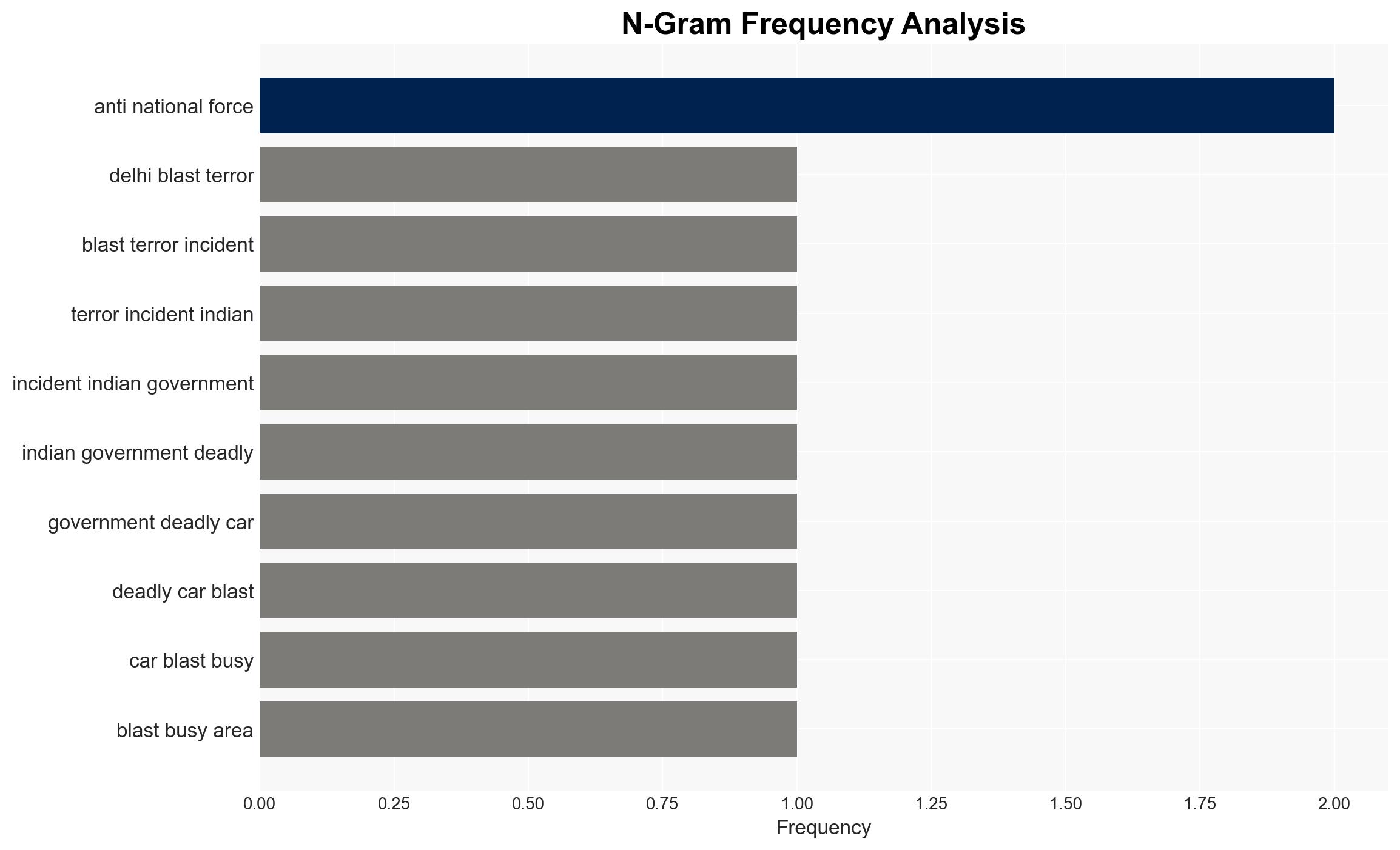Delhi blast was terror incident Indian government says – BBC News
Published on: 2025-11-12
AI-powered OSINT brief from verified open sources. Automated NLP signal extraction with human verification. See our Methodology and Why WorldWideWatchers.
Intelligence Report: Delhi blast was terror incident Indian government says – BBC News
1. BLUF (Bottom Line Up Front)
The Delhi blast is assessed with moderate confidence to be a terror incident orchestrated by anti-national forces, as stated by the Indian government. The most supported hypothesis is that it was a targeted attack aimed at destabilizing the region and challenging the government’s zero-tolerance policy on terrorism. Recommended actions include enhancing intelligence-sharing mechanisms and increasing security measures around high-profile landmarks.
2. Competing Hypotheses
Hypothesis 1: The blast was a terror incident carried out by anti-national forces with the intent to destabilize the region and challenge the Indian government’s policies.
Hypothesis 2: The blast was an isolated criminal act or accident, not directly linked to organized terror groups, possibly due to negligence or local disputes.
Hypothesis 1 is more likely due to the location’s symbolic significance, the timing near a high-profile landmark, and the government’s immediate labeling of the incident as terrorism. Hypothesis 2 lacks supporting evidence and is less consistent with the government’s response and the strategic context.
3. Key Assumptions and Red Flags
Assumptions include the reliability of government statements and the absence of immediate claims of responsibility by known terror groups. Red flags include potential bias in government reporting and the rapid attribution of the incident to anti-national forces without detailed evidence. Deception indicators could involve misinformation campaigns by interested parties to manipulate public perception.
4. Implications and Strategic Risks
The incident could escalate regional tensions, prompt retaliatory actions, and increase security measures, affecting public life and economic activities. There is a risk of copycat attacks or further destabilization efforts by other groups. Politically, the government might face pressure to demonstrate effective counter-terrorism measures, potentially leading to increased surveillance and civil liberties concerns.
5. Recommendations and Outlook
- Enhance intelligence-sharing with regional and international partners to prevent future incidents.
- Increase security presence and surveillance around key landmarks and public spaces.
- Engage in public communication to reassure citizens and counter misinformation.
- Best-case scenario: Quick identification and apprehension of perpetrators, leading to enhanced security and public confidence.
- Worst-case scenario: Further attacks leading to widespread panic and economic disruption.
- Most-likely scenario: Heightened security measures and ongoing investigations, with gradual return to normalcy.
6. Key Individuals and Entities
Prime Minister Narendra Modi, Home Minister Amit Shah, Delhi Police Commissioner Satish Golcha, Opposition Leader Rahul Gandhi.
7. Thematic Tags
National Security Threats
Structured Analytic Techniques Applied
- Cognitive Bias Stress Test: Expose and correct potential biases in assessments through red-teaming and structured challenge.
- Bayesian Scenario Modeling: Use probabilistic forecasting for conflict trajectories or escalation likelihood.
- Network Influence Mapping: Map relationships between state and non-state actors for impact estimation.
Explore more:
National Security Threats Briefs ·
Daily Summary ·
Methodology





